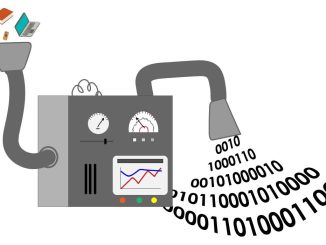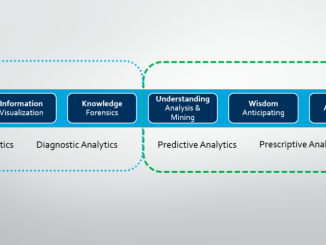[updated May 17, 2018]
 In recent years, the realm of software, analytics, and the digital oilfield has undergone significant transformations, and I've had the privilege to be an active participant in this journey.
In recent years, the realm of software, analytics, and the digital oilfield has undergone significant transformations, and I've had the privilege to be an active participant in this journey.
Background:
In the early stages of my involvement, specifically in 2010-2011, we embarked on the creation of a 24-7 operations center. Our vision at that time revolved around teams of operations engineers manually overseeing up to four active operations. While we recognized the potential value in this endeavor, the exact means of extracting that value remained shrouded in uncertainty. Field operations didn't require an overbearing overseer, but rather optimization and proactive problem resolution were the low-hanging fruits we aimed to pluck. It was reassuring to receive validation from three distinct solution providers who acknowledged that our company was at the forefront of land-based innovation in the United States.
Over the subsequent years, I've witnessed a remarkable evolution. Companies no longer debate whether to embrace 24-7 operations centers; instead, they now consider such support as integral to field operations. It's essential to note that not all Exploration and Production (E&P) companies establish their own facilities; many opt to contract with suppliers, typically rig contractors. This shift towards ubiquitous operations centers necessitated advancements in capabilities. The industry transitioned from mere data, information, and knowledge to a deeper level of understanding—understanding manifested through predictive analytics, post-event analytics, and innovative approaches like case-based reasoning.
In more recent years (from 2015 onwards), we've witnessed the normalization and heightened seriousness of activities like prescriptive analytics, wide-area reservoir analogs, data mining, data science, and machine learning within E&P operations.
Digital Transformation:
Digital Transformation is a relatively recent buzzword that aptly describes the next phase in the evolution of the digital oilfield. It encompasses the profound change brought about by the application of digital technology across all facets of human society. This transformation isn't merely about enhancing traditional methods; it inherently enables new forms of innovation and creativity within a specific domain.
George Westerman, a principal research scientist at the MIT Sloan Initiative on the Digital Economy, defines digital transformation as the strategic use of technology to drastically enhance a company's performance or reach. It's often driven by disruption from new market entrants or innovative rivals seizing opportunities to attract new customers.
Digital Transformation vs. Disruption:
It's crucial to distinguish between digital transformation and disruption. Disruption tends to be chaotic and unpredictable, while transformation signifies the evolution of a thoughtful process. Transformation can be likened to continuous improvement but without the constraints of preexisting expectations. To draw a parallel, continuous improvement of candles didn't lead to the invention of the light bulb. Instead, the light bulb emerged as the transformation of the candle into its logical successor.
Digital Transformation embodies the creative application of evolutionary thinking outside the conventional boundaries. It encompasses the metamorphosis of sensors into end-point Industrial Internet of Things (IIoT) devices, the shift from after-event forensics to pre-event assessments, and the transition from real-time retrospection to real-time anticipation.
Why Digital Transformation Matters:
Digital Transformation isn't a mere option; it's a necessity for survival. Seasoned digital pioneers, individuals who deeply understand the subject and have adapted to the ubiquity of computers, are retiring at an astonishing rate. They are being succeeded by a new generation of digital natives who inherently expect data to be readily available, processed, and capable of providing answers before they even pose the questions.
As per Lumina Datamatics, every organization must embrace digital transformation to some degree to remain competitive. This transformation can take various forms, including leveraging ubiquitous real-time data and algorithms to enable flexible and autonomous workflows. Modern processes and technologies have the potential to reduce operational overhead, allowing businesses to allocate more resources towards innovation that supports rapid adaptation to change.
Digital Transformation Framework:
Several constants and common themes emerge when considering digital transformation. These elements include a focus on:
- Customer experience
- Operational agility
- Culture and leadership
- Workforce enablement
- Integration of digital technology
Advancing Digital Transformation:
Moving digital transformation forward necessitates strong endorsement from the upper echelons of a company's hierarchy. Peter Dahlstrom and his colleagues identify seven pivotal decisions that must emanate from the Executive Leadership Team and the Digital Transformation Team:
- Determining the direction of the business
- Selecting the leader for the transformation effort
- Crafting strategies to communicate the vision to key stakeholders
- Positioning the firm within the digital ecosystem
- Making decisions during the transformation process
- Allocating funds swiftly and flexibly
- Knowing when and how to act
Conclusion:
Digital Transformation is not just on the horizon; it's here, and it's the natural progression. It's no longer optional but rather an imperative for companies striving to remain relevant and competitive.
The onus lies with the Executive Leadership Team to set the tone and mandate for transformation. Operations must wholeheartedly embrace this mandate, and the role of the Digital Transformation Engineer becomes pivotal in leading the charge. (Stay tuned for more insights on the characteristics of a Digital Transformation Engineer in upcoming discussions, tailored for technologists like you.)
References
(1) Digital transformation - Wikipedia
https://en.wikipedia.org/wiki/Digital_transformation
(2) What is digital transformation? A necessary disruption
https://www.cio.com/article/3211428/digital-transformation/what-is-digital-transformation-a-necessary-disruption.html
(3) Why Digital Transformation Matters
http://luminadatamatics.com/content/why-digital-transformation-matters/
(4) What is digital transformation?
https://enterprisersproject.com/what-is-digital-transformation
(5) The seven decisions that matter in a digital transformation: A CEO’s guide to reinvention
Peter Dahlström, Driek Desmet, and Marc Singer
https://www.mckinsey.com/business-functions/digital-mckinsey/our-insights/the-seven-decisions-that-matter-in-a-digital-transformation


